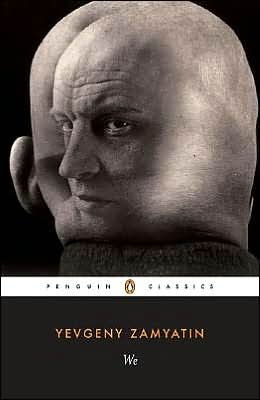Dystopia Timeline/History
These are some possible influences in dystopian fiction:
1868 The first use of the term dystopia by John Stuart Mill in a parliamentary speech.
1879 Thomas Edison, an American inventor, introduces the electric bulb, and this technological development will serve as inspiration for dystopian and utopian writers.
1880 The electric chair is introduced in USA.
1895 Guglielmo Marconi introduces the telegraph. It represents an important landmark in the evolution of communication and information technology.
1897 Radioactivity is discovered by Henri Becquerel.
1898 The publication of H. G. Well's novel War of The World, the first novel on an alien invasion on Earth.
1899 The first modern dystopias, The Story of The Days to Come and When The Sleepers Wakes by H. G. Well's are published.
1903 The first successful flight in an aeroplane is performed by the Wright brothers.
1909 A manifesto of Filipo Tommaso Marinetti, the Italian poet, introduces Futurism, controversial art movement.
1914 The European powers engage in the Great War, the first industrialized war.
1915 For the first time, the German army uses chemical weapons in the battle.
1917 A revolution in Russia.
1919 The Bauhaus school, that will influence art and design in a futuristic direction, is founded in Germany.
1924 The publication of Yevgeni Zamyatin's We, the first totalitarian dystopia.
1925 The Fascists seize power in Italy, implementing the first truly totalitarian system that USSR will follow.
1926 The first successful television transmission, that will introduce the most effective mean of mass propaganda and mass marketing, is conducted by John Baird.
Premire of the first serious science fiction and dystopian movie Metropolis, directed by Fritz Lang.
1932 Aldous Huxley's Brave New World was published. This novel introduces themes of scientific concepts: designer drugs, cloning and conditioning.
1936 The Spanish Civil War. The introduction of barbarian war methods by Fascists, such as air raids against civilian targets in Guernica, where more than one million people die.
The beginning of Stalin's terror era in USSR, which lasts until 1953.
1938 Radio adaptation of The War of the World by Orson Welles.
1939 World War II
1942 The Holocaust, The first industrial genocide in human history, is outlined in the Wanzee conference.
USA constructs the first nuclear reactor for military purposes.
1945 For the first time, USA uses nuclear weapons against human populations in Hiroshima and Nagasaki.
1946 The foundation of the United Nations, the first truly global piece organization.
ENIAC, the first official electronic computation machine, is completed in USA. EDSAC, the first real computer, is completed in Great Britain in 1949.
1949 The publication of George Orwell's Nineteen Eighty-Four.
1950 The philosophical foundation of artificial intelligence is defined by Alan Turing, called Turing Test.
1952 The introduction of the heart pacemaker.
1953 The structure of DNA is unraveled by Watson and Crick
Ray Bradbury's dystopian satire Fahrenheit 451 is published.
1957 Sputnik I, the first man-made satellite, is launched by USSR .
1966 The publication of Harry Harrison's over population dystopia Make room, make room
1967 The performance of the first heart transplant operation.
1968 Stanley Kubrick's and Arthur C. Clark's 2001: A Space Odyssey, that advances the artificial intelligence.
The publication of Philip K. Dick's novel Do Androids Dream of Electric Sheep?.
1969 The first expedition on the moon, Apollo 11 is implemented by USA.
The construction of the first primitive computer network in USA, this will entail the internet, the first global computer network.
1971 Stanley Kubrick's movie A Clockwork Orange is released.
The construction of the Soviet Salyut 1, the first space station.
1975 The first personal computer, Altar 800 is produced. That will influence the cyberpunk movement.
1979 A fundamentalist revolution in Iran.
Ridley Scott's horror movie Alien is released.
1981 A new disease, AIDS (although yet not knew by this name)is recognized in USA.
1982 The release of Ridley Scott's Blade Runner.
1984 The publication of William Gibson's Neuromancer.
James Cameron's The Terminator is released.
1987 Margaret Atwood's The Handmaid's Tale is published.
1989 The fall of the Berlin Wall.
1993 Internet is practically accessible to the public thanks to graphical user interfaces.
1999 The Matrix by the Wachowski brothers is released.
2001 The largest terrorist attack in New York.


